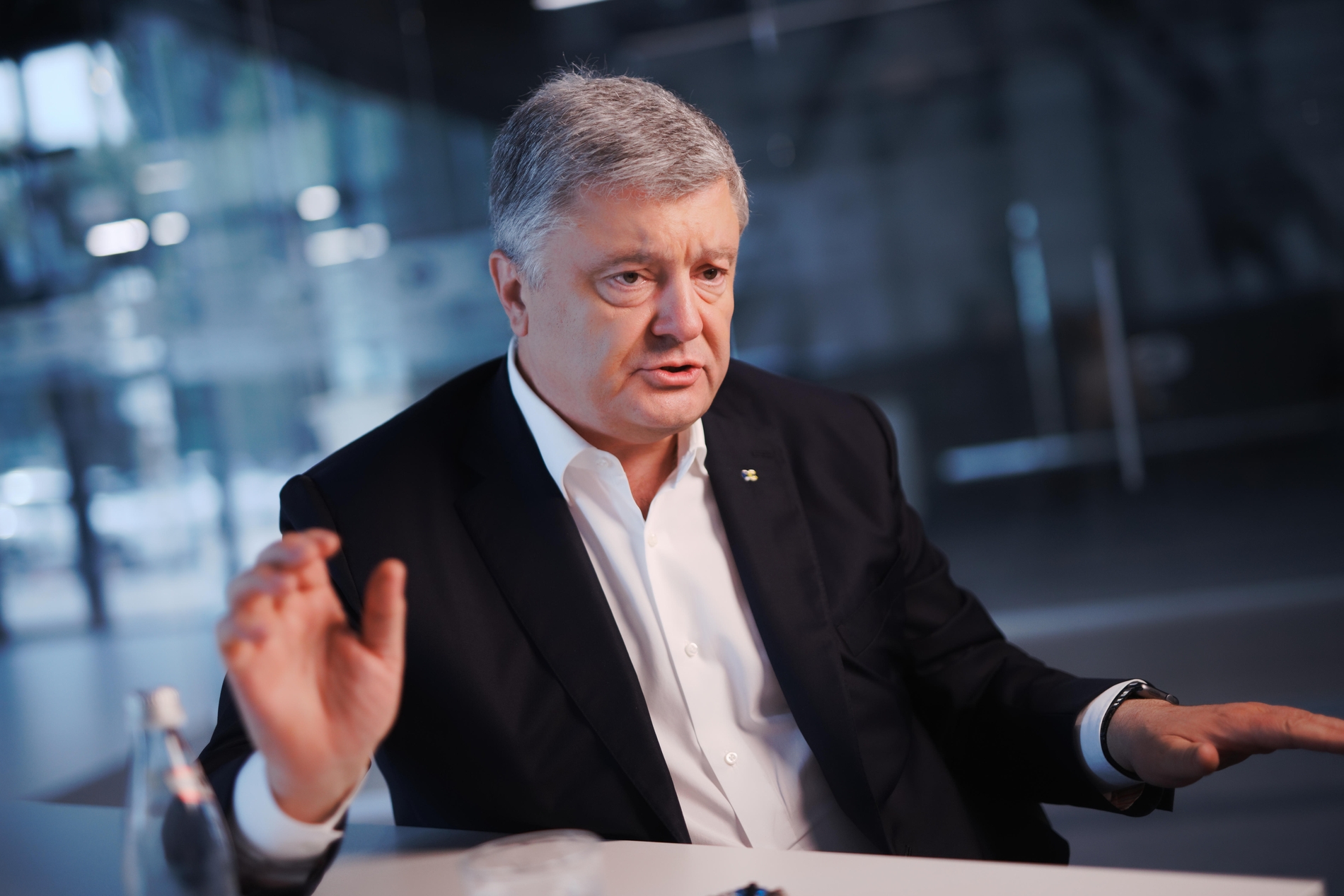The timing of the AMKU’s decision raises questions about a persecution campaign by Ukraine’s leadership against its major political rival as it was made only a day after Ukraine’s acting prosecutor-general had charged the ex-president with high treason and aiding terrorism. MP Poroshenko rejects the charges. The fined companies link the fine to a “politically motivated attack” on Poroshenko.
On 20 December, Ukraine’s acting Prosecutor General Oleksiy Symonenko charged former President Petro Poroshenko with high treason and aiding terrorism. A day later, Mr. Poroshenko said in a video address that he is going to return to Ukraine from a business trip abroad in the first half of January and rejected any accusations, while the US Embassy in Kyiv in its tweet, said that the US “is closely following the case against former President Poroshenko. Crucial that process and outcome be based on the rule of law, not politics.” A similar statement also appeared on the Twitter of Melinda Simmons, British Ambassador to Ukraine.
Meanwhile, on 21 December Ukraine’s antimonopoly agency fined three companies associated with Petro Poroshenko.
AMKU’s financial penalties on Roshen’s molasses producers
The Antimonopoly Committee fined the group of three companies – Interstarch Ukraine LLC, Dnipropetrovsk KPK PJSC, Interkorn PJSC – “related to the relationship of control through the ultimate beneficial owner, Petro Poroshenko,” the AMKU’s press release stresses.
The summary of the decision published on the agency’s website reads,
“The defendants in the case № 126-26.13/75-20 were fined a total of UAH 283,624,500 for two violations of the legislation on protection of economic competition, provided for in part one and paragraph 2 of part two of Article 13 and paragraph 2 of Article 50 of the Law of Ukraine ‘On Economic Protection competition’ in the form of abuse of monopoly (dominant) position in the national market of primary sale of molasses of starch corn and glucose syrups.”
The press release lists those two counts of violation as
- “unjustified increase in prices for molasses and syrups during April-June 2018, February-March 2019, and in October 2020;”
- “establishing during 2018-2020 different conditions for equivalent agreements with buyers of this product without substantiated reasons.”
According to the Committee, the Group was the only molasses producer in Ukraine and the only producer of corn starch in Ukraine.
In the rationale for its decision, the AMKU mentions among other findings that the group of companies used to implement price exemptions for some of its customers so that those wouldn’t start buying molasses in Russia,
“For example, exclusively low prices were set for one of the buyers of molasses in the period under investigation. The explanation for this may be the Group’s attempt to prevent one of its largest buyers of molasses from switching to a competitor (importer) – Amilko LLC (Rostov Oblast, Russia), as well as to prevent other buyers of molasses whose facilities are located in the eastern part of Ukraine.”
The AMKU mentions that later, in early 2019, the Cabinet banned molasses imports from Russia.
The fined companies see the case as political and are going to sue AMKU
In its press release, Interstarch Ukraine said on behalf of the whole group of companies that the AMKU made its decision “violating the procedure of case consideration.” Moreover, the companies believe that the case is a politically-motivated attack on Petro Poroshenko,
Among the alleged procedural violations, Interstarch mentions:
- Lack of any economic and technological examinations led the AMKU to the allegedly incorrect assessment of the market:
“In particular, the AMCU has not investigated the interchangeability of corn starch molasses with other types of molasses, made from other raw materials (such as wheat). According to the absurd logic of the committee, if Apple produces an iPhone, it is a monopolist in the iPhone market and there is no need to analyze its alternatives,” Interstarch’s press release reads.
- Dniprovskyi KPK and PJSC Interkorn, according to Interstarch, don’t sell molasses to third parties and can’t affect prices, thus these two companies became defendants unjustifiably (AMKU fined each of three companies individually).
- The AMKU “did its best to deprive the companies of their procedural rights, including the opportunity to present its position in the case to the regulator” by not granting numerous requests of the companies to give them more time to prepare a response to the preliminary findings, according to Interstarch.
- “Moreover, despite the AMCU’s false claims, the regulator failed to even inform the company of the date, time, and place of the hearing properly… In fact, the companies received ‘invitations’ to the meeting only on the day of the meeting,” Interstarch says.
If not revoked, the decision of the AMCU will “negatively affect the investment climate in Ukraine, and will show international investors that doing business in Ukraine is dangerous and extremely risky,” the press release concludes, promising that the companies are going to use all legal means to overturn the decision of the AMKU.
Read more:
- Zelenskyy ready to frame Poroshenko on criminal charges
- Investigator closes a criminal case against Poroshenko, denouncing political pressure (2020)
- Prosecutors step back as thousands of supporters rally for Poroshenko (2020)
- Lock him up! Political repressions en vogue again as Zelenskyy steps up campaign against Poroshenko (2020)
- Political persecution sharpens in Ukraine as first MP faces “preliminary penal measures”
- Ukraine moves one step closer to jailing its former president; his supporters bring on the caricatures
- Critics of Ukrainian President Zelenskyy face criminal charges
- Whistleblower from Zelenskyy’s party slammed with five criminal proceedings
- Political persecution concerns raised as Poroshenko-affiliated ex-MP arrested in Ukraine (2019)
- Poroshenko’s man in defense industry accused of graft & smuggling: truth or pre-election manipulation? (2019)
- Expert: Journalists falsely accused Poroshenko of corruption (2016)




